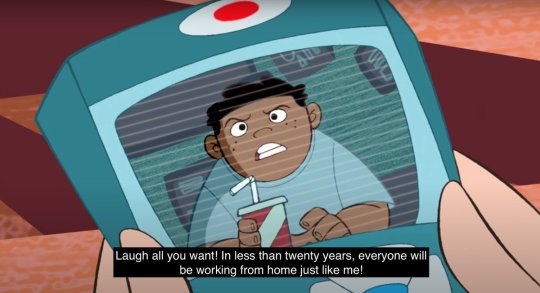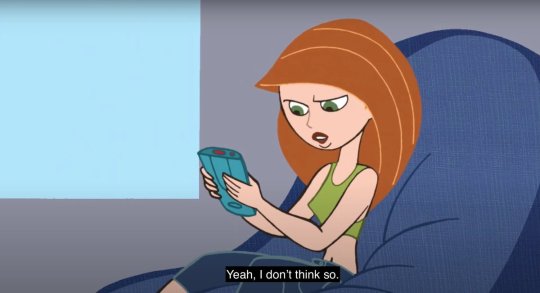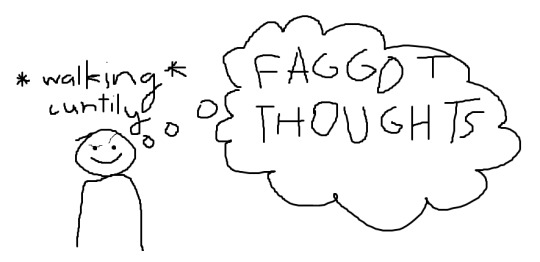Photo



I dont even need the “binky fucks my mom now” edit the originals are so much funnier
414K notes
·
View notes
Text
willy wonka and the inventor mindset
roald dahl’s books, as fondly as i feel about them, have a habit of conflating good and evil with being good or bad at appreciating aesthetic things—just a bit too much.* what i like about charlie and the chocolate factory, but even more so about willy wonka and the chocolate factory (the 1971 movie adaptation) is that it gets much more specific about what exactly it thinks aesthetic appreciation does and doesn’t look like. so you have wonka, who is a kind of “perfect” creator. and you have charlie, who is a “perfect” consumer. and then you have this whole cast of characters that get taxonomized by their ability to appreciate wonka’s inventions.
*(matilda in matilda and charlie in charlie and the chocolate factory are both good-hearted children, mistreated and deprived by a world of tv-watching, cake-gorging philistines. the foxes in the fantastic mr. fox are starved by evil farmers, so they steal chicken and ham to have an enormous banquet. the big friendly giant in the bfg is tragically forced to subsist on the awful snozzcumber, but gets triumphantly served a delicious breakfast at the end. hell, james lives in a giant peach. we know the witches in the witches are evil because they do perverse things to food, eating pea soup and plotting to lace the candies in sweet shops with poison. the villains in his stories are, without fail, the greedy, small-minded and gluttonous. sensitive appreciators versus abusive authority.)
the “bad” young people, for example, consume unthinkingly, with the entitlement of never having been denied anything. the “bad” middle generation is too preoccupied with image and success to care about appreciation (the overworked parents). and the oldest generation is complacent and isolated (the bedbound grandparents). by contrast, the “good” young person (charlie) savors his chocolate. the “good” middle person, wonka, is a workaholic in the service of something beautiful. and the “good” older person, joe, has a flexible mind still capable of childlike wonder. (all present-day jokes about what a jackass joe actually is aside)
in willy wonka the people who are bad at art constantly attempt to prove their expertise, except their boasting only reveals how much they care about the wrong or trivial things. their motivations are egoistic. so on the surface, someone like violet “loves” gum, is always talking about the properties of gum—flavor, how long it lasts—but what she really wants is to be the authority of gum. when wonka tries to warn violet away from his experimental gum, she declares: “so long as it’s gum, then that’s for me.” and proceeds to authoritatively narrate her own transformation into a human blueberry.
some more ways that ego interferes with appreciation:
1. confident wrongness
WONKA: Now, don’t get overexcited! Don’t lose your head, Augustus! We wouldn’t want anyone to lose that! Yet. Now, the combination … This is a musical lock. (He plays the opening to Mozart’s “Marriage of Figaro.”)
MRS. TEEVEE (decisively): Rachmaninoff.
2. irrelevant boasting
WONKA: My dear Veruca, what a pleasure. And how pretty you look in that lovely mink coat.
VERUCA: I’ve got three others at home.
3. cruelty or evasion in order to preserve authority
MR. TURKENTINE: What do you think [this chemical mixture] makes?
CHARLIE: I don’t know, sir.
MR. TURKENTINE: Of course you don’t know. You don’t know because only I know. If you knew and I didn’t know, then you’d be teaching me instead of me teaching you. And for a student to teach his teacher is presumptuous and rude. Do I make myself clear?
CHARLIE: Yes, sir.
4. treating the unknown as “weird” or “disgusting” or trivial
MIKE: Boy, what weird looking coat hangers.
_
MR. SALT: What is this, Wonka? Some kind of fun house?
_
MRS. GLOOP: What a disgusting, dirty river.
MR. SALT: It’s industrial waste, that. You’ve ruined your watershed, Wonka. It’s polluted.
WONKA: It’s chocolate.
VERUCA: That’s chocolate?!?
CHARLIE: That’s chocolate.
VIOLET: A chocolate river.
GRANDPA JOE: That’s the most fantastic thing I’ve ever seen.
what’s peculiar about willy wonka is that superficially, wonka himself is quite egoistic. he’s obscure, and glib, and his teasing would be nearly cruel if the people were capable of detecting that he was teasing. this is a very different quality for a “good” authority figure in a dahl story to have. wonka does not have the motherly kindness of miss honey or the grandmother in the witches. i would call the book wonka impish, but the movie one is downright trollish. i’m not even sure if dahl would endorse him.
compare this wonka exchange with the one charlie had with his chemistry teacher:
WONKA: (as he mixes a concoction) Invention, my dear friends, is ninety-three percent perspiration, … six percent electricity, … four percent evaporation, … and two percent butterscotch ripple.
(He tastes.)
MRS. TEEVEE: That’s a hundred and five percent!
MR. SALT: Any good?
wonka is being undeniably evasive. he doesn’t expect the people to understand his process, and so he doesn’t share it. he doesn’t even bother to have patience. but unlike the chemistry teacher’s evasion, which is a wall that you can breach with flattery or obedience (ego things), wonka’s acts as a kind of filter. the right person will notice that wonka’s flippancy is the real explanation of his invention process. he is saying: the specifics of this experiment do probably matter, but actually telling you the specifics would just lead you to cargo cult the wrong things (imagine: people writing in moleskines because hemingway did), but here is the attitude that helps me discover the right process. he is saying: if you can think in this magical, imaginative, irreverent way that values beautiful things, you can probably make beautiful things too. people who are good at art, who are good at inventing, are often characterized by this kind of disguised dismissal. that quality that says, simultaneously: “you don’t deserve my seriousness yet” and “but i am giving you an invitation to play.” people that are cargo-culting the impatience of the competent do not leave these sorts of openings. they have no desire to be actually understood because if they were understood it would be clear that their motivations had to do with ego and not making something good.
the utter disappointingness of most of the golden ticket winners makes wonka’s impatience sympathetic. it’s understandable. but i wouldn’t say that the movie advocates it, exactly, and i wouldn’t say that i do either. it’s a side-effect of the good thing, but meanness is not itself the good thing. i say this because the end of the movie strikes an interestingly upsetting emotional tone. wonka yells at charlie, and it hurts because we know that charlie is good, and wonka is supposed to recognize that. his impatience was only supposed to be for people who don’t get it, not charlie. what good is wonka’s filter if even charlie wouldn’t make it through? and if wonka values joy and whimsy so much, why would he be bothered by charlie playing with the fizzy lifting drinks? but wonka is surrounded by half objects during this scene—half a clock, half a cup, half a hat—and we understand that wonka is just half-done person himself. imperfect, not magic, and lashing out because a boy he was hopeful about disappointed him (about the gobstopper, to be clear, not the fizzy lifting drinks). it complicates the bichromatic morality of dahl’s books, in other words, while still nakedly valuing the sincere appreciation of beautiful things.
(EDIT: i was talking to my brother and he/we had the additional insight that wonka being disappointing to charlie and/or the audience conveys the idea that being disappointed in your idols–the way wonka is disappointed in everyone else–is a key, painful process of developing your own artistic attitude. maybe you don’t even feel disappointed, but simply aware that the idol cares about something you don’t, or in a way that you think is wrong. and you feel motivated to improve on them.)
1K notes
·
View notes
Text
i don’t expect this to be very widely known but here in vancouver we’ve had a barge stuck on shore since mid november

we’re going on day 25 of barge simpson not moving a damn inch and i for one hope it never moves
135K notes
·
View notes
Text
11K notes
·
View notes
Text


Chris Evans in Not Another Teen Movie (2001)
Orville Peck by Brett Loudermilk for Paper Magazine (2024)
2K notes
·
View notes
Text
I made Hungarian mushroom soup and it's a little too delicious to be real

20K notes
·
View notes
Text
AITA for striking my (M43) son (M20) when he rejected me as his father?
I understand that the title might have you thinking the worst, but please hear me out.
I didn't have a relationship with my son for basically all his life. This was due to my circumstances at the time: I went through a major personal tragedy and was severely injured, to the point of being on life support. To this day I have a lot of issues with my health.
I recently reconnected with my son. I immediately invited him to meet my boss (M92), in hopes that I could set him up with a job opportunity. I feel that this is significant. As far as I know, my son has been working in menial jobs in agriculture, but then apparently chose to leave that life and - to my shock - join a criminal syndicate.
I felt as if getting a good government job would be a way to turn over a new leaf in his life, especially given his past. However, he immediately became combative. I attempted to give him some guidance in managing his emotions, but he rejected that as well.
I'm sad to say that the argument became physical. Some blows were exchanged, but in the end, I was angry enough to strike him. I immediately felt very bad, and decided to offer him the government job on the spot. He rejected me again, and chose to leave very abruptly. I haven't had any contact with him since.
So, AITA?
Edit: Yes, I admit that to call it striking him was an understatement. To clarify, I cut off his hand.
Edit: However, I feel like it should be stated that I myself am a quadruple amputee and we have excellent healthcare.
Edit: I did not immediately identify myself as his father when we met. I think this was my mistake. I think he would have been much more receptive of my message had I done so. As it stands I only told him of our relationship after I had struck him.
Edit: My wife is not in the picture. To my knowledge she passed before his birth.
2K notes
·
View notes








